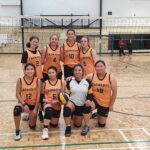The professional standards of most occupations often state the need for continuing professional development (CPD) and ongoing reflective practice.
CPD tends to have specified parameters and is often self-explanatory. Reflective practice on the other hand, can be a little more ambiguous.
So, let’s explore what reflective practice means and how you can develop it.
Reflective practice requires self-awareness, as well as the ability and willingness to critically examine your experiences, behaviours, emotions and thought processes in order to inform your future actions. It is encouraged because of the opportunities it allows for professional and personal growth.
Awareness of an experience or behaviour is always the first step – once you’ve reflected on your understanding of why you behaved in a particular way, you can then consider what you might do differently (or the same) next time. By paying careful attention to yourself, you can recognise patterns and be more mindful of enacting your preferred behaviour in future experiences.
In a professional or educational context, you can preform this honest analysis on your own or alongside a supervisor or mentor.
To help you build your self-awareness, check out the Self Awareness module in the Skilled Professional Challenge.
How can you ensure your reflective practice is precisely that – a regular practice?
Developing a structured reflective practice is key, it enables you to set aside time to reflect on an experience not long after it has happened, perform an analysis, and determine future steps. Structured reflective practice can include writing in journals, establishing and contributing to a community of practice or group of like-minded professionals, engaging in group discussions online or in-person, or seeking out mentoring programs and opportunities.
Here’s a few ideas to get you started:
- Set aside time. Only you can decide how often – daily, weekly, or event specific
- Consider using a reflective practice framework or model
- Ask critical questions:
- What happened?
- Why did it happen?
- What were the consequences?
- What did I do well?
- What could I have done differently?
- What did I learn from this experience?
- Actively seek feedback from peers, mentors and supervisors
- Set yourself goals for improvement.
The Goal Setting and Habits for Success modules in the Skilled Professional Challenge can help you develop structured reflective practises.
How can you demonstrate reflective practise in your job applications and interviews?
This goes hand in hand with using specific real-life examples to ‘paint a picture’ for potential employers. You demonstrate reflective practice when you utilise the Situation Task Action Result (STAR) method to answer any question that starts with ‘tell me about a time when…’. You also demonstrate reflective practice when answering common questions about your strengths and weaknesses.
The Selection Criteria and Interview modules in the Getting a Job Challenge can help you demonstrate reflective practises in your job applications.
I invite you to develop reflective practice skills regardless of your chosen field or profession. Make it a habit – it will only add value to your personal and professional life!
This article was written by Career Development Consultant, Rindala Hadzic.



